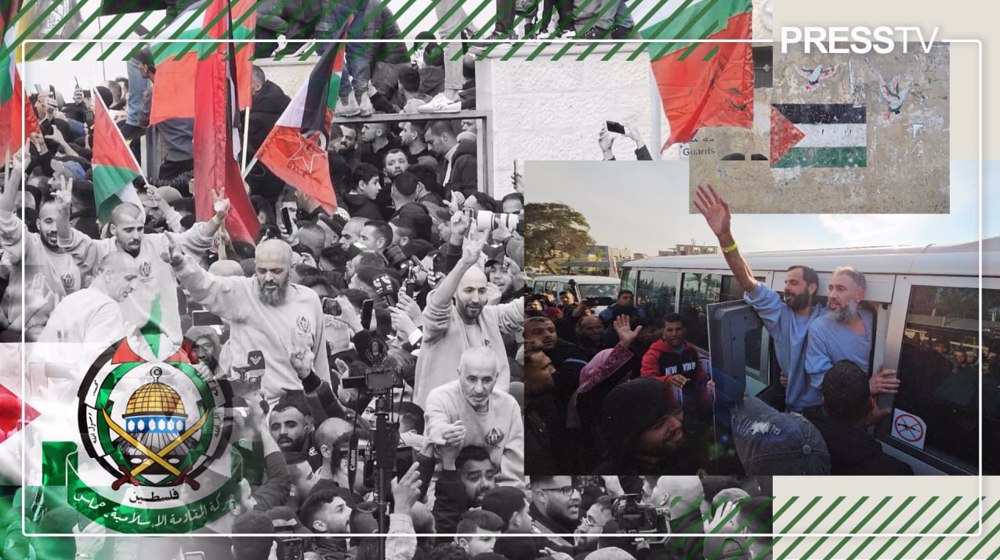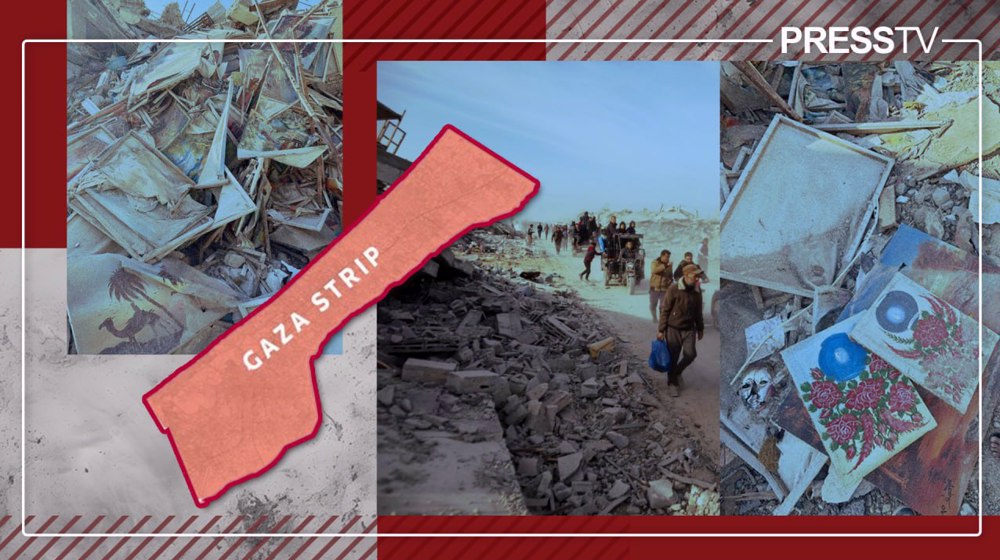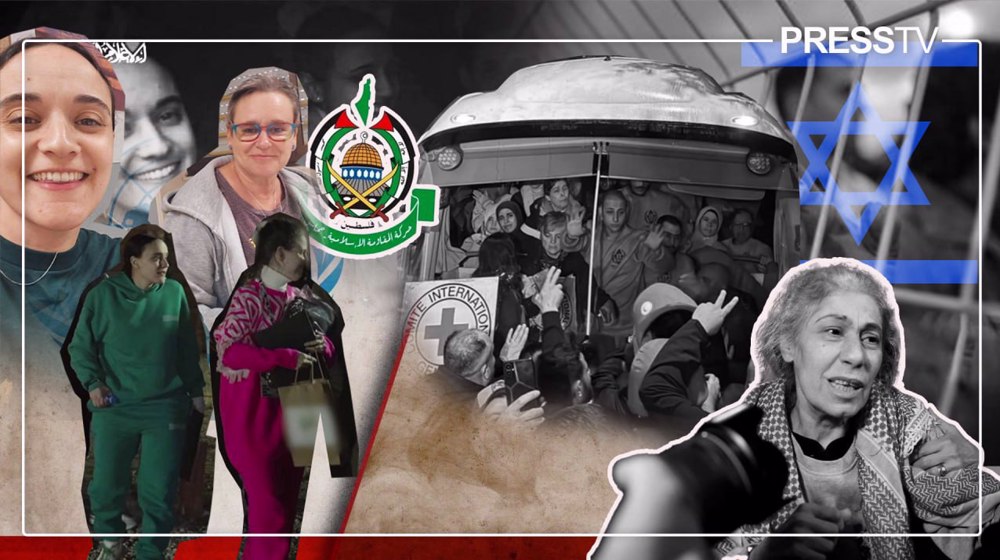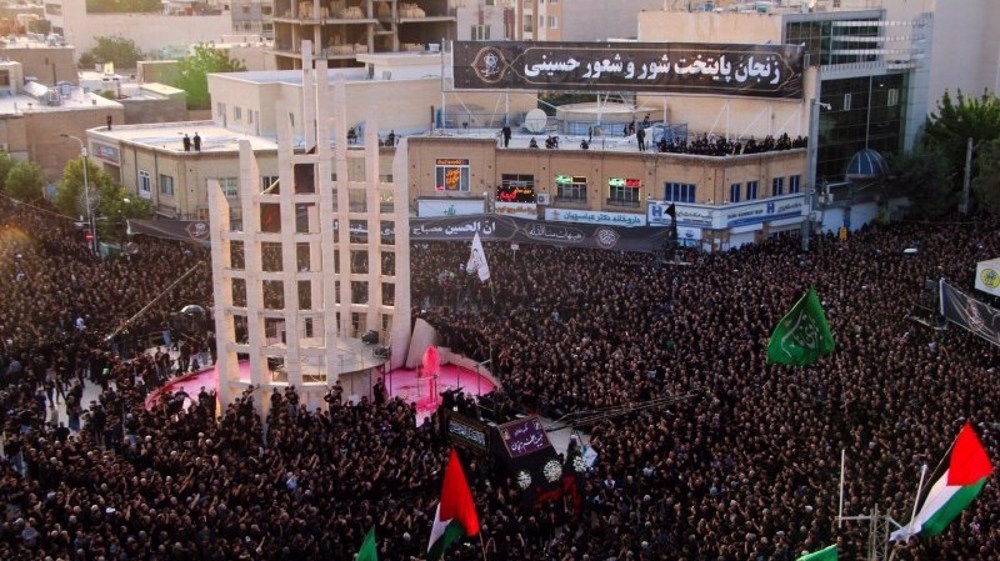The chronicles of ‘Azadari’: Mourning for Imam Hussein (AS) in Islamic literature
By Syed Ali Safvi
Mourning is important to keep the memory of Karbala and the legacy of Imam Hussein (AS) alive and historical texts show even Prophet Mohammad (PBUH) and other prophets cried for Hussein.
Mourning is a spontaneous reaction that stems from real human emotions. It is a physical expression that fundamentally involves pain and tears. Tears are a sign of suffering, loss, and pain.
The Holy Qur'an has in many places mentioned crying as an inherent human emotion, and not once has it disapproved or condemned it. It tells the story of Prophet Yaqub (AS) who profusely cried for his son Prophet Yusuf (AS) and in the process lost his eyesight.
When Almighty breathed His spirit into Adam, he hit his head and cried.
Prophet Noah (AS), whose original name was Ghaffar, got the name because of his intense crying. Prophet Ibrahim (AS) asked God to bless him with a daughter who would cry over him on his deathbed.
Prophet Mohammad (PBUH), according to many authentic accounts, wept at the death of his son Ibrahim (AS). It has been mentioned in many Sunni and Shia historical texts.
Press TV correspondent Maryam Azarchehr is on the streets of Tehran, reporting on the Ashura commemorations.
— Highlights (@highlightsnews1) July 16, 2024
Follow us on Telegram: https://t.co/7h1TYXZOQt pic.twitter.com/VQjn52GAKn
Renowned Islamic scholar Anwar Shah Kashmiri opines that expressing grief, sorrow, or crying and weeping at the loss of a loved one is not against the tenets and spirit of Islam.
Allama Shah Abdul Haq Muhadith Dehlavi writes in his book "Madarij al-Nabuwat" that after the battle of Ohad when the Holy Prophet (PBUH) reached Medina, he heard the screams of mourning from the homes of Ansars (the helpers), but was dismayed to see no one mourning for Hamzah (AS).
He asked in severe grief: “Isn't there anyone to cry over Hamza (AS)?' Allama Dehlavi writes that Safiya came and stood by the head of Hamza, and along with Fatimeh (AS) kept crying for him.
Overcome by the emotions and magnitude of the tragedy, the Holy Prophet (PBUH) also broke into tears.
Ibn Katheer in his seminal book, "Al-Bidayah Wal-Nihayah", narrates an incident from Ibn Ishaq that when Jafar ibn Abi Talib (AS) was martyred, the Holy Prophet (PBUH) called on his son Abdullah and started kissing his forehead while tears were rolling down his face.
When the Holy Prophet (PBUH) passed away, his wives, daughter, and other family members as well as his loyal companions mourned and cried profusely.
Mourning for Imam Hussein (AS)
The life of the Holy Prophet (PBUH) is a beacon of guidance and inspiration for all Muslims, irrespective of sectarian and ideological affiliations. In fact, he was sent as a mercy for all mankind.
A true believer must follow his teachings in letter and spirit. A true Muslim relates his happiness and sorrow with that of the Holy Prophet (PBUH) and his progeny.
Thousands of mourners in the Iraqi city of Samawah have joined Muslims around the world to pay tribute to the martyrs of Karbala.
— PressTV Extra (@PresstvExtra) July 16, 2024
Follow Press TV on Telegram: https://t.co/0EMmcJs6DL pic.twitter.com/B13k9xDbtp
He wept for his grandson Hussein ibn Ali (AS) on many occasions for he knew what would happen to him. Imam Hussein's (AS) martyrdom, as stated by Shah Adlul Aziz Dehlavi in his book Tohfah Asna Ashria, was a tragedy for the Holy Prophet (PBUH) for he loved his grandson so much that he would often say “Hussein is from me and I am from Hussein ".
Tarikh Ibn Katheer (vol 11, p29-30), Ibn Athir (vol 5, p364) and Musnad of Ahmad ibn Hanbal (vol3, p342) narrate that angel Jibrael informed the Holy Prophet (PBUH) that Hussein (AS) will be martyred by a group from your ‘Ummah’ at a place known as Taff' (Taff is another name of Karbala).
Taff means seaside or a riverside and Jibrael gave him some soil of that place. The Holy Prophet (PBUH) cried upon hearing this and told some of his closest companions about the tragedy.
Allama Ibn Hajar Makki in his book Sawaiq al-Muhariqa narrates from Abu Said that on the day of Ashura, "fresh blood was found under every stone, and the sky also rained blood whose result was evident on clothes for ages”. Tafseer al-Jalalayn and Shah Abdul Aziz have also reported it.
In the Holy Quran, Almighty Allah emphatically states that “the skies and earth did not weep for them (Pharaoh and his people) nor were they given a respite" (44:29).
This verse clearly testifies that skies and earth do weep when God's chosen people leave this world. It also warns that those who follow Pharaoh and ilk shall perish, and those who offer life for the sake of Islam shall be respected when alive and mourned when dead.
Allama Sheikh Sulaiman Al-Hanafi al-Qanduzi writes in Yanabi Al-Muwaddah (p392) that the sky wept for four days on the martyrdom of Imam Hussein (AS)”.
Allama Jalaluddin Sayuti in his Tafseer Dur al-Manthur narrates that heaven and earth have cried for just two martyrs since the creation of this world: Yahya ibn Zakariya (AS) and Imam Hussein (AS).
Shah Abdul Aziz in Sirr al-Shahadatein, Majma al-Zawaid (vol 9), and Marifat al-Sahaba (vol 5) also speak about the lamenting and wailing of heavenly creatures on Ashura.
Mourners in Saudi Arabia's Shia-populated Qatif region pay tribute to martyrs of Karbala
— PressTV Extra (@PresstvExtra) July 16, 2024
Follow Press TV on Telegram: https://t.co/0EMmcJsEtj pic.twitter.com/yND7eMEi5P
Jamaluddin al-Mizi in Tahdhib al-Kamal, vol 6, narrates from Abu Qabeel that the sun had eclipsed and stars could be seen during daytime when Hussein (AS) was martyred.
In Sirr al-Shahadatein, Shah Abdul Aziz narrates from Umme Salma (AS) that she saw the Holy Prophet (PBUH) in her dream. His beard and face were covered with dust. When she inquired, he said he had come from Karbala.
In the same book, the famed scholar narrates from Ibn Abbas that he saw the Holy Prophet (PBUH) in his dream. His hair was untidy and his body was covered with dust. He was holding a glass jar filled with blood. When Ibn Abbas inquired, he said it was the blood of Hussein (AS) and his companions.
Syed Abdul Qadir Jeelani, in his book Ghunyat al-Talibeen, narrates from Hamza bin Ziyat that he saw Prophet Mohammad (PBUH) and Prophet Ibrahim (AS) offering prayers at the grave of Hussein(AS).
He writes that 70,000 angels descended at the grave and wept for the beloved grandson of the Holy Prophet (PBUH), and they will continue to weep for him till the Day of Judgment.
Allama Sibt-e Jawzi in Tadhkirat al-Khwas (p152) writes that Ibn Abbas never stopped crying after Ashura and the intense crying resulted in the loss of his eyesight.
Shah Abdul Aziz in Sirr Al-Shahadatein writes that during the Battle of Siffin, Imam Ali (AS) happened to pass through Karbala. He cried while saying, “Be patient oh Aba Abdullah on the bank of Euphrates'.
When Yahya al-Hazrami, who was accompanying him, inquired about the sudden outpouring of emotions. Imam Ali (AS) told him that the Holy Prophet (PBUH) had informed him that Hussein (AS) would be martyred on the bank of Euphrates.
Abu Mohammad Sulaiman al-A'mash Kufi Tabi narrates in Noorul Abrar that while performing Hajj he saw a person clinging to the cloak of Kaaba, asking for God's forgiveness.
"Oh Allah! Forgive me for my sins, but I am afraid You will not forgive me," he cried.
Abu Muhammad told him that he was in the holiest place on the earth where all sins are forgiven. The man told him that his sins were unforgivable.
"I am among those 70 people who brought the severed head of Hussein (AS) to the court of Yazid ibn Muawiya. Yazid placed it in a golden tray and kept it in his bedroom. His wife got up during the night and saw a beam of light emanating from Hussein's head,” he narrated.
Mourners observe Tasu'a commemorating Imam Hussain's martyrdom
— Press TV 🔻 (@PressTV) July 16, 2024
Gisoo Misha Ahmadi reports from Tehran. pic.twitter.com/37LPckUacb
“She got scared and we were ordered to take the tray away and keep it in a tent outside the palace. As night fell, I suddenly got up and saw a big cloud hovering overhead and after some time it landed near our tent. I saw a man coming out from it, carrying a mat and some chairs.
“He spread the mat and placed chairs on it, and then he called 'Oh Adam (as), come out'. I saw a visibly old but graceful man coming near the severed head of Hussein (AS), and reciting a few verses in his praise. Then I saw Noah (AS), Ibrahim (AS), Mossa (AS), Eesa (AS) - all paying their respect and tribute to Hussein (AS).
And finally, I saw the Holy Prophet (PBUH), his daughter Fatima Zehra (AS), his grandson Hasan (AS), and scores of angels. The Holy Prophet (PBUH) embraced the severed head of Hussein (AS) and wept, then he gave it to Hazrat Fatima (AS) who also hugged her son's head and cried. I saw Adam (AS), Ibrahim (AS), Moosa (AS), and Eesa (AS), all expressing their condolences to the Holy Prophet (PBUH).”
Purpose and importance of mourning
Mourning is important to keep the memory of Imam Hussein (AS) and other martyrs as well as survivors of Karbala alive. This is a legacy that will continue to inspire the seekers of truth and justice.
"They call us a nation of tears, but with these tears, we have overthrown an empire,” said Founder-Leader of the Islamic Revolution Imam Khomeini (RA). He also said that whatever we have is due to Muharram and mourning commemorations held in the month of Muharram.
Mourning is not a ritual. It is an expression of support and solidarity with the movement of Imam Hussein (AS) and a protest against all forces that represent evil and falsehood.
Yazidi forces have always tried to belittle the significance of Ashura by describing mourning as "unIslamic". Their agenda is to malign the movement of Karbala and shield the perpetrators.
They claim that since Ashura is the day when Islam became victorious, the occasion must be celebrated.
Abu Raihan writes in Al-Asarul Baqiyah that Banu Umayads would dress themselves in new clothes, organize feasts and distribute sweets on Ashura. The practice, he writes, continued among them even after the fall of the Ummayad regime.
Maulana Muhammad Shafi Okadvi writes in Sham-e Karbala that celebrations on Ashura amount to showing disrespect to the Holy Prophet (PBUH) and his household.
Every year Iranians in the northern city of Masuleh hold the traditional ceremony of “Alam Bandan” to mourn the martyrdom of Imam Hossein, the third Shia Imam.
— Press TV 🔻 (@PressTV) July 15, 2024
In this tradition, groups of mourners gather to receive their “Alam” (flagpole) and take it to their neighborhoods. pic.twitter.com/rffCvsETnX
The love for Ahlulbayt, he notes, is essential for all Muslims.
Ashura is the culmination of Allah's message for which he sent 124,000 messengers, according to scholars. The day of Ashura breathed life into the soul of Islam.
Allama Ibn Hajr Asqalani in his book Isaba (p226) quotes the Holy Prophet (PBUH) as saying “Those who weep for my son Hussein (as) on Ashura, Allah will place them in paradise alongside the Ul'il Uzm prophets."
Allama Shah Abdul Haq Muhadith Dehlavi writes in Akhbar al-Akhyar that Hazrat Sheikh Ahmed Majd Sheebani - who was a disciple of Hazrat Imam Sheebani and a descendant of Imam Abu Hanifa - would never wear new clothes during the 10 days of Muharram.
He would visit the houses of Sayyeds on A’shura and give water to their orphans while lamenting.
(Syed Ali Safvi is a journalist and researcher based in Kashmir, India.)
Putin congratulates Lukashenko on ‘convincing’ re-election as Belarus president
Iran Army ground forces kick off offensive, security drill
Qalibaf: Israel failed to sell false notion of victory over Resistance as Hamas 'alive'
Iran ‘ready’ to share scientific, technical expertise with Saudi Arabia: Telecoms minister
Harsh conditions await returnees to war-wracked north Gaza: UNRWA
Lebanese nation’s strong will, spirit ‘most powerful weapons’ of Resistance: Hezbollah
Israeli forces intensify West Bank raids, kill teenager near Qalandia
Decisive defeat: Iran says Trump’s maximum pressure fails miserably, targets civilians











 This makes it easy to access the Press TV website
This makes it easy to access the Press TV website